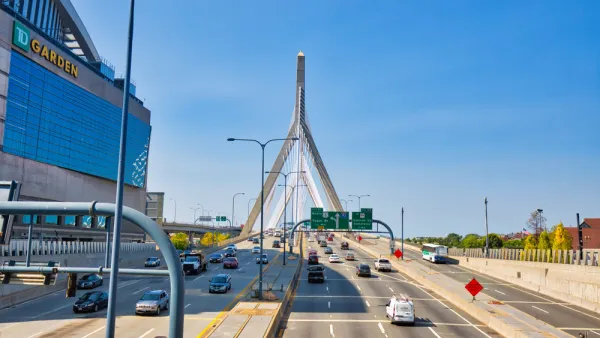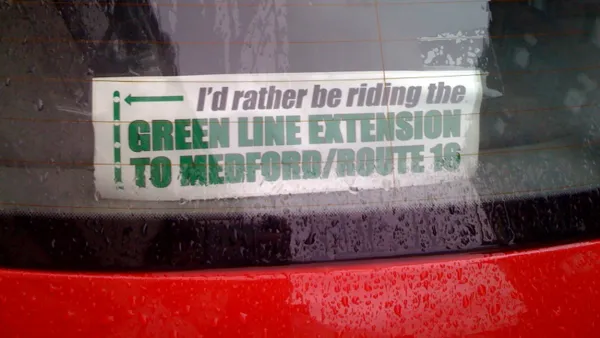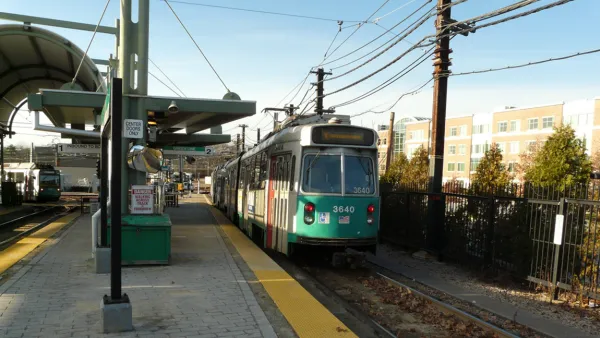With six new Green Line stations coming to Somerville, Massachusetts in the next few years, planners and political leaders are trying to find the right balance between transit oriented redevelopment and its more expensive consequences.
Amy Crawford reports on a dilemma at the intersection land use and transit, in this case represented by Somerville, Massachusetts, just outside of Boston. The suburb, which already saw rapid increases in real estate prices when the "T" came to Somerville in 1984, will soon gain six more stations along the Green Line.
The problem: how much will the cost of living go up when transit comes to the neighborhood? According to Crawford, a February report from the Metropolitan Area Planning Council "warned that rent for apartments near the new Green Line stations could rise by as much as 67 percent, and that condo conversions could accelerate starting even before the new T stops open." In fact, reports Crawford, "Developers are already using the Green Line extension in their sales pitches, and renters who live near planned stations report that their landlords have begun to raise the rent — in some cases by 100 percent or more."
To anticipate the coming pressure on transit-adjacent markets, Mayor Joseph Curtatone has adopted redevelopment plans that would increase density: "The goal is at least 6,000 new units by 2030, including 1,200 designated as permanently affordable." The Metropolitan Area Planning Council, however, claims that "Somerville may actually need as many as 9,000 more units (a third of them for low-income households)."
Crawford's coverage also mentions the relevance of the Somerville case study to situations in places like Charlotte, Denver, Atlanta, and Washington D.C.
Astute observers will recall that Paul McMorrow's earlier coverage on Somerville's planning approach to the Green Line expansion highlighted a different concern—how not to repeat the mistake of letting neighborhoods get left out of the renewal and redevelopment potential of new transit capacity.
FULL STORY: Does New Mass Transit Always Have to Mean Rapidly Rising Rents?

Analysis: Cybertruck Fatality Rate Far Exceeds That of Ford Pinto
The Tesla Cybertruck was recalled seven times last year.

National Parks Layoffs Will Cause Communities to Lose Billions
Thousands of essential park workers were laid off this week, just before the busy spring break season.

Retro-silient?: America’s First “Eco-burb,” The Woodlands Turns 50
A master-planned community north of Houston offers lessons on green infrastructure and resilient design, but falls short of its founder’s lofty affordability and walkability goals.

Test News Post 1
This is a summary

Analysis: Cybertruck Fatality Rate Far Exceeds That of Ford Pinto
The Tesla Cybertruck was recalled seven times last year.

Test News Headline 46
Test for the image on the front page.
Urban Design for Planners 1: Software Tools
This six-course series explores essential urban design concepts using open source software and equips planners with the tools they need to participate fully in the urban design process.
Planning for Universal Design
Learn the tools for implementing Universal Design in planning regulations.
EMC Planning Group, Inc.
Planetizen
Planetizen
Mpact (formerly Rail~Volution)
Great Falls Development Authority, Inc.
HUDs Office of Policy Development and Research
NYU Wagner Graduate School of Public Service




























